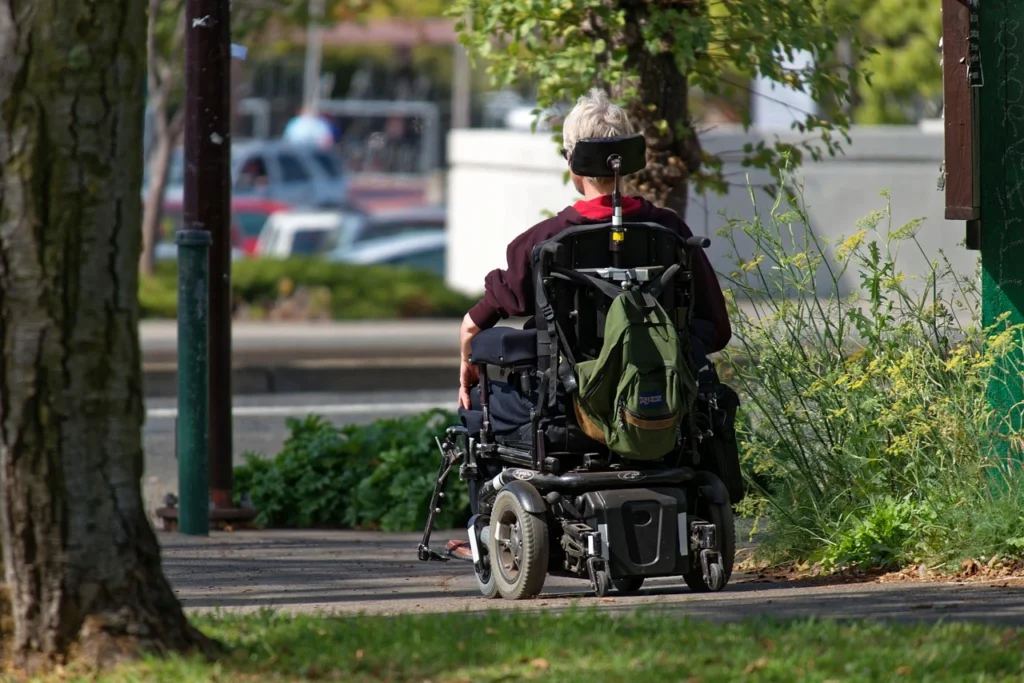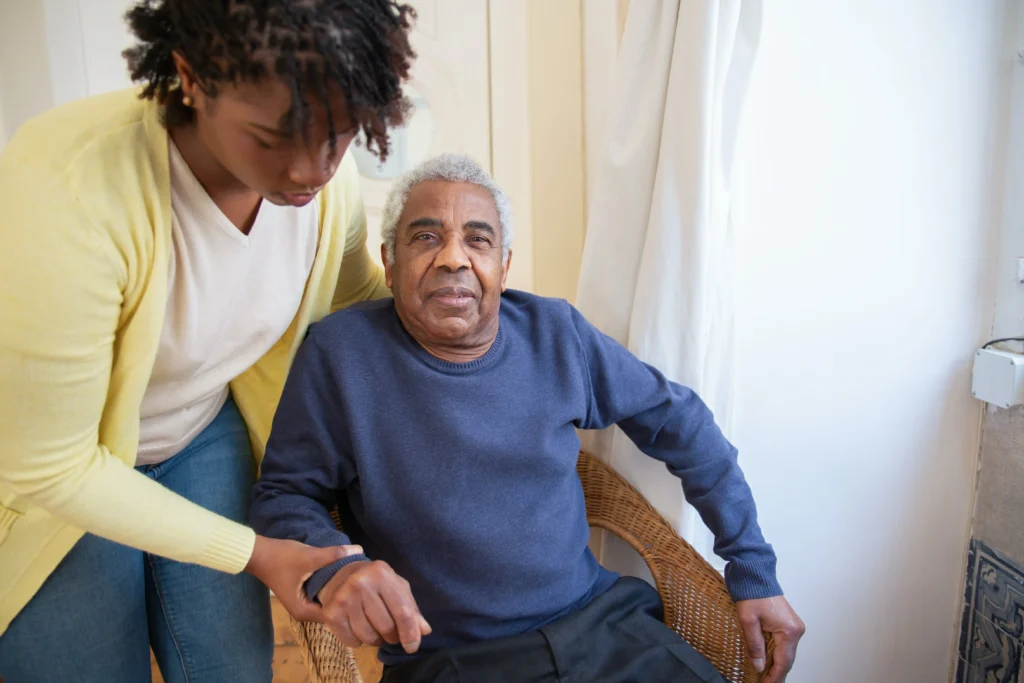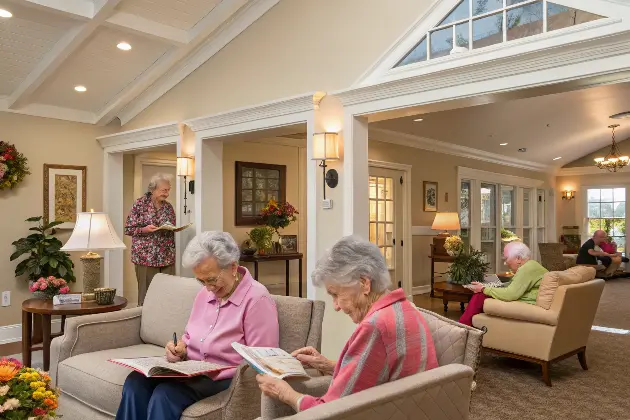How To Find the Best Nursing Homes Near Me: Top 10 Homes

- Assisted living vs Nursing home
- Best nursing homes near me or in your area
- Factors to consider when choosing a nursing home
- Questions to ask when evaluating a nursing home
- How to protect your assets from nursing home
- Medicare coverage for nursing home care and what happens when it stops
- Conclusion
- Frequently Asked Questions (FAQs)
This post may contain affiliate links, meaning I may earn a commission if you make a purchase, at no extra cost to you. I only recommend products I trust. Thank you for your support.
As our loved ones age, their healthcare needs may become more complex and require specialized care.
Nursing homes provide a safe and supportive environment for individuals who require round-the-clock medical attention and assistance with daily activities.
Finding the best nursing homes near me can be challenging. Luckily, we have curated a list of the best nursing homes and offer advice on selecting the ideal care facility that accept both medicare and medicaid for your loved ones.
Assisted living vs Nursing home
When comparing assisted living vs nursing home, it’s crucial to understand the distinctions to make an informed decision for yourself or a loved one.
Understanding the differences in services and care offered by assisted living and nursing homes can help in making an informed decision based on individual needs and preferences.
Here’s a breakdown of the key differences between assisted living vs nursing home:
Assisted Living
Assisted living facilities cater to active seniors seeking independence while requiring minimal nursing assistance.
Some essential features include:
- Residents spend one to two years in care on average
- Nutritional meals and dining services
- Emphasis on social connections and wellness programs
- Promotes independence while providing necessary care
- Residents typically live in their own apartments or suites with private baths and kitchenettes
Nursing Home
Nursing homes provide 24-hour skilled nursing care and supervision for seniors with serious medical needs.
Key features include:
- Average stay is around 2.25 years or 835 days
- High level custodial and skilled residential care
- Full-time medical care and monitoring
- Services include palliative care, hospice care, mobility assistance, and various therapies
- Assistance with daily living activities
- Suitable for seniors with limited mobility, chronic illness, or diminished eating ability
- Residents are not usually permitted to leave the facility
- Residents typically live in a private or semi-private room that does not include a living room or kitchen
| Aspect | Nursing Home | Assisted Living |
|---|---|---|
| Memory Loss Care | ✔ | ✔ |
| Medication Management | ✔ | ✘ |
| Meals | ✔ | ✔ |
| Housekeeping | ✔ | ✔ |
| Exercise / Activities | ✔ | ✔ |
| Transportation Services | ✘ | ✔ |
| 24 Hour Care / Supervision | ✔ | ✘ |
| Rehabilitation Services | ✔ | ✘ |
| Insurance Coverage | ✔ | ✘ |
| Hospice Care | ✔ | ✘ |
| Promotes Independence | ✘ | ✔ |

Best nursing homes near me or in your area
When searching for the best nursing homes near you, it is helpful to consult reputable sources and review rankings of top-rated facilities.
Websites such as care compare formerly nursing home compare and the U.S. News & World Report provide comprehensive evaluations and ratings of nursing homes across the country.
These rankings take into account factors such as health inspections, staffing levels, and quality measures.
Here are some of the best nursing homes in United States:
1. 15 Craigside
- Located in Honolulu, HI, 15 Craigside stands out with an impeccable overall rating of 5/5.
- This is a small facility with 45 beds.
- Provides a variety of services such as nursing care, rehabilitation, and recreation.
- As part of a continuing care retirement community, it participates in both Medicare and Medicaid.
2. Longhorn Village
- Nestled in Austin, TX, Longhorn Village boasts a perfect overall rating of 5/5.
- Has 60 beds.
- Provides life care services, including assisted living, memory care, skilled nursing, and rehabilitative care.
- This facility, part of a continuing care retirement community, accepts both Medicare and Medicaid.
3. Aaron Manor Rehabilitation and Nursing Center
- In Fairport, NY, Aaron Manor stands as a sizable facility with 140 beds with a rating of 4/5.
- Offers skilled nursing care, rehabilitation, recreation, nutritional meals, and social work services.
- Additionally provides services such as on-site dental, ophthalmologist, and podiatrist care, hospice, and a certified stroke rehabilitation program.
- This facility accepts both Medicare and Medicaid.
4. Abbeyville Skilled Nursing and Rehabilitation Center
- Situated in Lancaster, PA, Abbeyville Skilled Nursing and Rehabilitation Center offers care in a large facility with 172 beds and an overall rating of 4/5.
- Well-appointed private rooms with private baths and amenities.
- Services offered include 24/7 medical care, specialized care for medical conditions, rehabilitation services, wound care, pain management, and medication management.
- This facility accepts Medicare, Medicaid, and most private insurances.
5. Hannah B. G. Shaw Home
- Hannah B. G. Shaw Home, located in Middleboro, MA, is a medium-sized facility with 107 beds and an outstanding overall rating of 5/5.
- Provides services in short term rehabilitation, nursing care, memory care, residential care, and long term care.
- This facility allows LTC insurances, Medicare and Medicaid.
6. Elizabeth Seton
- In Wellesley, MA, Elizabeth Seton is a nonprofit that stands as a medium facility with 84 beds and an overall rating of 5/5.
- Services include therapeutic diets, spiritual care, dental services, short term and out patient rehab, palliative, and hospice care.
- Elizabeth Seton health services are covered by Medicare.
7. Aberjona Rehabilitation and Nursing Center
- Winchester, MA is home to Aberjona Rehabilitation and Nursing Center, a large facility with 123 beds and an exceptional overall rating of 5/5.
- They provide services such as post surgical rehabilitation, respite care, cardiac rehabilitation, skilled nursing care, hospice care, nutritious meals, 24-hour medical supervision, therapeutic services, ADL, companionship, and spiritual care.
- It participates in both Medicare and Medicaid.
8. Edgewater Skilled Nursing Center
- Situated in Long Beach, CA, Edgewater Skilled Nursing Center is a medium-sized facility with 81 beds with a stellar overall rating of 5/5.
- Services include respite care, nursing care, therapeutic, dietary, and social services.
- They are certified for both Medicare and Medicaid.
9. ACC Care Center
- Located in Sacramento, CA, ACC Care Center stands as a medium-sized facility with 99 beds achieving a top-tier overall rating of 5/5.
- Excels in skilled nursing care, physical, occupational, and speech therapy, podiatry, dental, and counseling services.
- ACC Care Center allows both Medicare and Medicaid.
10. Country Villa Rehabilitation Center
- In Los Angeles, CA, Country Villa Rehabilitation Center is a large facility with 180 beds and a perfect overall rating of 5/5.
- Services include, nursing care, therapy, podiatry, dental, memory programs, and meals.
- This facility accepts both Medicare and Medicaid.
Factors to consider when choosing a nursing home
Selecting the right nursing home for your loved ones is a decision that should not be taken lightly. There are several factors to consider to ensure their safety, well-being, and overall quality of life.
Here are some key factors to keep in mind when evaluating nursing homes:
1. Location
Consider the proximity of the nursing home to your family members. It’s important to choose a facility that is conveniently located, allowing you to visit your loved ones frequently and participate in their care.
2. Staff-to-Resident Ratio
Inquire about the staffing levels at the nursing homes. A low staff-to-resident ratio can affect the quality of care provided. Look for facilities that have an adequate number of caregivers to ensure your loved ones receive personalized attention.
3. Accreditation and Licensing
Research the accreditation and licensing of the nursing homes. Accreditation from organizations such as The Joint Commission or CARF International ensures that the facility meets or exceeds quality standards. Licensing ensures that the nursing home complies with state regulations.
4. Specialized Care
If your loved ones have specific medical needs, such as dementia or Alzheimer’s disease, ensure that the nursing home has experience and expertise in providing specialized care for these conditions.
5. Cleanliness and Safety
Visit the nursing homes in person to assess the cleanliness and safety of the facility. Look for clean and well-maintained common areas, comfortable living spaces, and safety measures such as handrails and emergency call systems.
6. Social and Recreational Activities
Engaging in social and recreational activities is essential for seniors’ mental and emotional well-being. Inquire about the variety of activities offered at the nursing home, such as exercise programs, outings, and social events.
Questions to ask when evaluating a nursing home
During your search for a nursing home, it is essential to ask the right questions to gather all the necessary information.
Consider inquiring about the staff-to-resident ratio and the qualifications of the caregivers. Ask about the facility’s policies regarding medical emergencies and how they communicate with family members.
Inquire about the availability of social activities and opportunities for residents to engage in hobbies and interests. Additionally, discuss the cost of care, including any additional fees or charges that may apply.
By asking these questions, you can gain a comprehensive understanding of the nursing home’s operations and determine if it aligns with your loved one’s needs.

How to protect your assets from nursing home
One concern that many individuals have when considering nursing home care is the potential impact on their assets, particularly their homes.
It is important to be aware of the rules and regulations surrounding asset protection and to plan accordingly.
To avoid a nursing home placing a lien on your assets or house, consider the following strategies:
- Irrevocable Trust: Establish an irrevocable trust to transfer ownership of your home. This legal arrangement can protect the property from being considered as an asset for nursing home expenses.
- Medicaid Planning: Engage in Medicaid planning, which involves understanding the eligibility criteria and implementing legal strategies to protect assets, including your home, while still qualifying for Medicaid coverage.
- Homestead Exemption: Leverage homestead exemption laws in your state. Some states offer protections that limit the ability of creditors, including nursing homes, to place liens on your primary residence.
- Transferring Ownership: Consider transferring ownership of the home to a spouse, family member, or trust well in advance of needing long-term care. However, this should be done cautiously and in adherence to legal guidelines.
- Long-Term Care Insurance: Invest in long-term care insurance to help cover potential nursing home expenses without jeopardizing your home. Ensure that the policy aligns with your specific needs and financial situation.
- Legal Consultation: Seek advice from an elder law attorney who specializes in asset protection and Medicaid planning. They can provide personalized guidance based on your circumstances and local laws.
- Timing of Transfers: Be mindful of the timing of any asset transfers. Transferring assets too close to the need for nursing home care may be subject to look-back periods, affecting Medicaid eligibility.
- Utilize Exempt Assets: Identify and utilize exempt assets that are not considered when determining Medicaid eligibility. Understanding the rules around exempt assets can help safeguard your home.
- Life Estate Deed: Consider a life estate deed, allowing you to retain the right to live in the home until your passing while ensuring that it doesn’t become part of your estate for Medicaid purposes.
It’s important to note that these strategies can be complex and may have legal and tax implications, so it’s advisable to seek professional financial and legal advice before proceeding.
Medicare coverage for nursing home care and what happens when it stops
Medicare is a federal health insurance program primarily designed for individuals aged 65 and older.
While Medicare does provide coverage for certain aspects of nursing home care, it is important to understand the limitations and what happens when Medicare stops paying for nursing home care.
Medicare covers skilled nursing care on a limited basis, typically following a hospital stay of at least three days.
During this time, Medicare will cover the cost of a semi-private room, meals, skilled nursing care, and rehabilitative services such as physical therapy.
However, Medicare coverage is time-limited and will only cover up to 100 days of skilled nursing care.
Once Medicare coverage ends, individuals may be responsible for the cost of nursing home care out-of-pocket or through other means, such as long-term care insurance or Medicaid.
It’s important to plan ahead and explore alternative options to finance long-term care once Medicare coverage ends.
For veterans, there are specialized nursing homes known as veterans nursing homes that provide care exclusively for those who have served in the military.
The cost of staying in veterans nursing homes varies depending on factors such as income, assets, and eligibility for benefits.
The Department of Veterans Affairs (VA) offers various programs and benefits that can help cover the costs of long-term care in these facilities.
It is advisable to consult with the VA or a veterans service organization to understand the eligibility requirements and available assistance.
Conclusion
Choosing the best nursing homes for your loved ones is a significant decision that requires careful consideration.
By understanding the difference between nursing homes and assisted living facilities, evaluating important factors, and utilizing resources to find top-rated facilities, you can make an informed choice.
Asking the right questions and considering the financial implications will further assist in narrowing down options.
Ultimately, the goal is to find nursing homes that provides the highest quality of care and creates a comfortable and supportive environment for your loved ones as they navigate their golden years.
Learn more about
- Caregiver vs caretaker
- Intracranial Pressure (ICP)
- Respite care near me
- 7-day meal plan for elderly
- 7 day meal plan for kidney disease
- Best assistive devices for elderly
- How to initiate end of life conversations with seniors
- 21 day fatty liver diet plan
- Find nanny in your area
- Benefits of therapy dogs for elderly
- Cognitive stimulation therapy exercises
- The power of empathy and compassion
- Find the best memory care facilities in your area
Frequently Asked Questions (FAQs)
How to avoid nursing home taking your house?
To protect your home from nursing home claims, consider options like establishing an irrevocable trust, engaging in Medicaid planning, leveraging homestead exemption laws, and consulting with legal professionals for personalized guidance.
What happens when Medicare stops paying for nursing home care?
When Medicare stops paying for nursing home care, individuals may be responsible for covering the costs themselves.
Alternatively, if eligible, they can consider Medicaid coverage for ongoing long-term care.
It’s important to explore other options such as long-term care insurance or personal funds to ensure continued care in a nursing home facility.
How much does it cost to stay in a veterans nursing home?
The cost of staying in a veterans nursing home varies based on factors like location, level of care needed, and veterans’ eligibility.
Generally, veterans may be eligible for cost-free care if they meet specific criteria, while others may incur fees based on their financial situation and the home’s policies.
Assisted Living vs Nursing Home: What are the key differences?
Assisted living provides more independence, offering assistance with daily activities, while nursing homes provide skilled medical care for those with complex health needs.
How to find an assisted living facility near me?
Finding an assisted living facility near you involves researching local options, considering the services they offer, visiting facilities, and checking reviews. Online directories, referrals, and recommendations can be valuable in the search.




